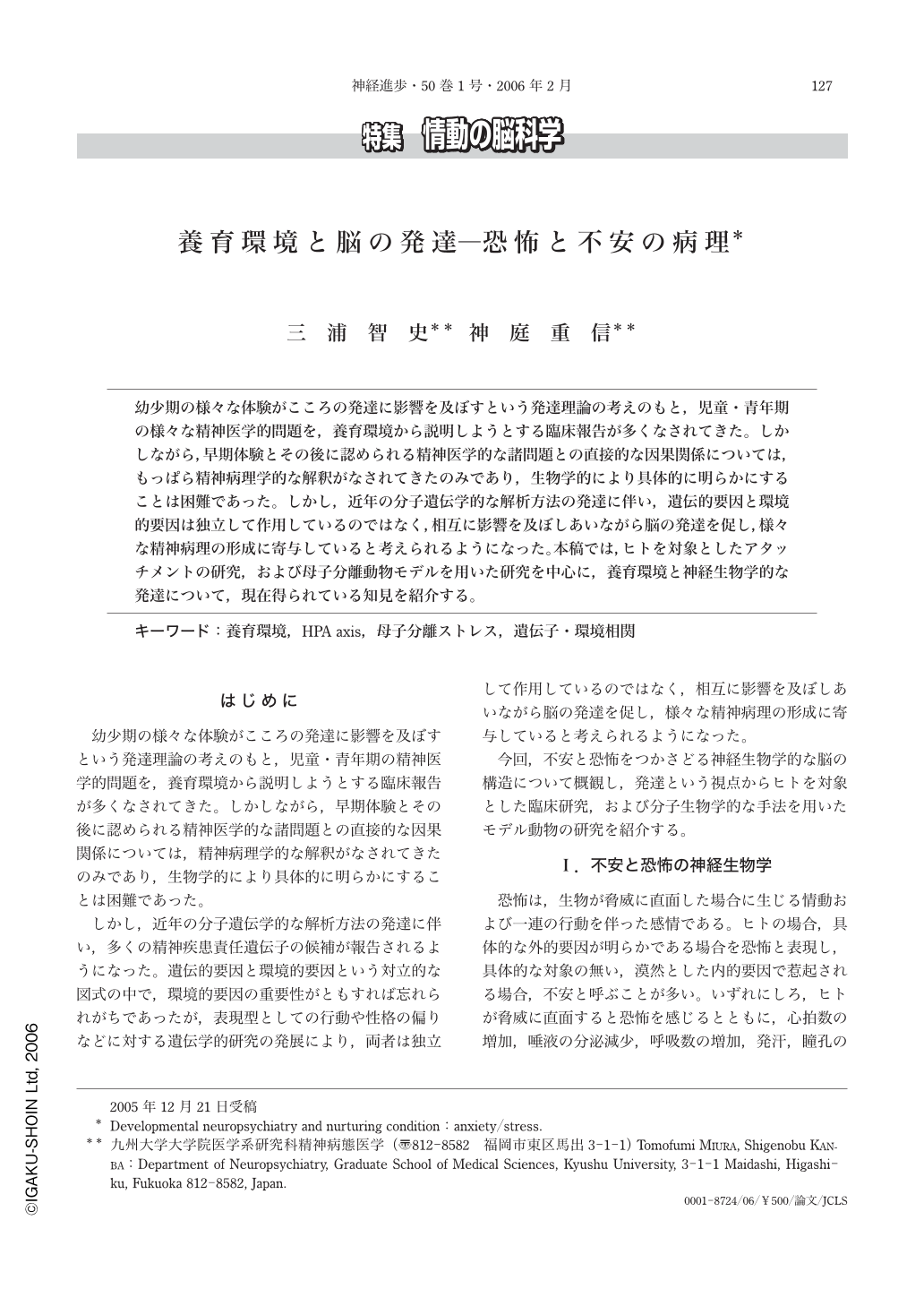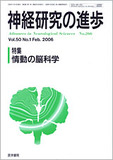Japanese
English
- 有料閲覧
- Abstract 文献概要
- 1ページ目 Look Inside
- 参考文献 Reference
幼少期の様々な体験がこころの発達に影響を及ぼすという発達理論の考えのもと,児童・青年期の様々な精神医学的問題を,養育環境から説明しようとする臨床報告が多くなされてきた。しかしながら,早期体験とその後に認められる精神医学的な諸問題との直接的な因果関係については,もっぱら精神病理学的な解釈がなされてきたのみであり,生物学的により具体的に明らかにすることは困難であった。しかし,近年の分子遺伝学的な解析方法の発達に伴い,遺伝的要因と環境的要因は独立して作用しているのではなく,相互に影響を及ぼしあいながら脳の発達を促し,様々な精神病理の形成に寄与していると考えられるようになった。本稿では,ヒトを対象としたアタッチメントの研究,および母子分離動物モデルを用いた研究を中心に,養育環境と神経生物学的な発達について,現在得られている知見を紹介する。
The idea that early experiences influence adolescent behavior has long been a fixture of developmental theory. Many clinicians tried to explain how nurturing conditions affect the psychological problems, but it was difficult to describe the biological mechanism of the relationship between them. The result of the recent advances in molecular genetics, it became clear that a gene-by-environmental interaction was important to understand a development of a brain. In this article, we introduce the result of studies about attachment in human as well as the animal model of a maternal deprivation.

Copyright © 2006, Igaku-Shoin Ltd. All rights reserved.


